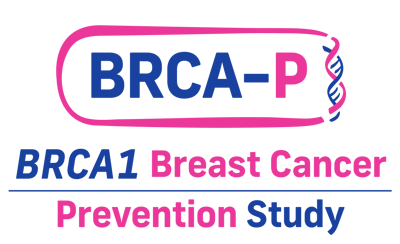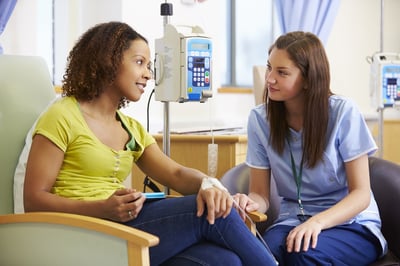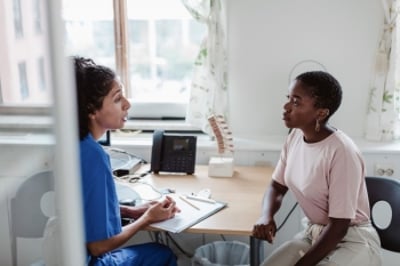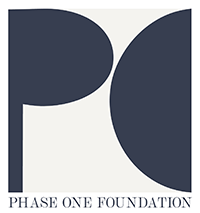Our Featured Research Page lists cancer prevention, treatment and quality of life studies enrolling people with or at high risk for hereditary cancers. Sign up for our community newsletter to stay up-to-date on the latest hereditary cancer research.
Search Results: Prevention, Detection & Risk + Breast Cancer (10 results)

Prevention
Prevention study enrolling women ages 25-55 with a BRCA1 mutation
Denosumab for Breast Cancer Risk Reduction in Women With an Inherited BRCA1 Mutation (The Breast Cancer Prevention Study)
This is a study to test the effectiveness of a drug (denosumab) on preventing the development of breast cancer in women with an inherited BRCA1 mutation.
Denosumab is a drug that is currently used to treat bone loss in order to reduce the risk of broken bones in healthy people, and is also used to reduce new bone growths in cancer patients whose cancer has spread to their bones. Research has shown that denosumab may also reduce the risk of developing breast cancer in women with an inherited BRCA1 mutation.

Prevention
Prevention study for people with a BRCA1, BRCA2 or PALB2 inherited mutation who are planning to undergo risk-reducing mastectomy.
Testing a Vaccine for Preventing or Treating Triple-Negative Breast Cancer
Researchers are studying the affects of this breast cancer vaccine on the immune system in two groups of people:
- People with an inherited mutation in BRCA1, BRCA2, or PALB2 who are planning to undergo a risk-reducing mastectomy.
- For people diagnosed with stage 2 or stage 3 triple-negative breast cancer at high risk for recurrence.
.jpeg)
Prevention
Study to Determine if Breast Cancer Screening can be Made Better by Personalizing Each Woman’s Mammogram Schedule
The WISDOM Study: Women Informed to Screen Depending on Measures of Risk
The goal of the Wisdom Study is to determine if breast cancer screening can be made better by personalizing each woman’s mammogram schedule, compared to the current one-size-fits-all, annual approach. The Wisdom Study is designed to end the confusion about when to start and how often to have a mammogram. For more information, visit the WISDOM Study website.

Prevention
People with a BRCA1 or BRCA2 mutation
Testing a Vaccine for Cancer Prevention in People with a BRCA1 or BRCA2 Mutation
This study will look at a new vaccine known as INO-5401 used alone or combined with a second vaccine called INO-9012. The study will test if the vaccine is safe (without large side effects) and test a new way of giving vaccines. It will also test whether the vaccine activates the immune system. A goal of this research is to reduce cancer risk in people with a BRCA1 or BRCA2 mutation. Additional studies will be needed to learn if this vaccine approach lowers cancer risk in mutation carriers.

Prevention
Study for people undergoing DIEP flap reconstruction
Restoring Sensation after DIEP Flap Reconstruction
The goal of this study is to look at how well a nerve graft works for improving sensation to the reconstructed breast after mastectomy in people undergoing DIEP flap reconstruction (deep inferior epigastric perforator flap).

Prevention
Latinas with a high risk of breast cancer
Helping Latinas Understand Their Risk for Breast Cancer and Get Breast Cancer Care
This study will teach Latinas with a high risk of breast cancer about how diet, exercise, ethnicity, genetics and screening and prevention guidelines may impact their likelihood for developing breast cancer.

Prevention
People with a genetic mutation in BRCA1, BRCA2 or Lynch syndrome who have relatives who have not been tested
IGNITE-TX - Identifying Individuals for Genetic Testing for Familial Cancer
The IGNITE-TX study is all about helping people with a genetic mutation in BRCA1, BRCA2 or Lynch syndrome talk to their family members about their risk for cancer and find the best way to get family members tested.

Prevention
Serum Biomarkers to Characterize the Effects of Therapy on Ovarian Reserve in Premenopausal Women With Early-stage Breast Cancer or BRCA Mutations
The purpose of this study is to see how cancer treatment affects the ovaries, such as the impact on conceiving a child or the early onset of menopause. Comparatively, the study will also look at high-risk women with BRCA1/2 mutations (and no evidence of breast or ovarian cancer).
The study will check blood levels of hormones that the ovaries produce and will use questionnaires to gather information about participant menstrual cycles, health, and pregnancies.

Prevention
RANKL Inhibition With Denosumab on Mammographic Density in Premenopausal Women With Dense Breasts (TRIDENT)
The purpose of this study is to evaluate if denosumab can reduce the breast density of premenopausal women who have dense breasts. Denosumab is an FDA-approved injectable medication that is used to treat osteoporosis and to prevent fractures in cancer patients with bone metastases. This study could help us identify novel ways to prevent breast cancer in younger women.

Prevention
Genomic Services Research Program Study for People with Unexpected Genetic Results
A new study is recruiting people who received unexpected genetic test results about their cancer risk after having genetic testing done for some other reason.
This is a study of people with "secondary results” from genetic testing. Secondary results are unexpected. They are not related to the reason the person had the genetic test but are shared because they may be very important to the person’s health. Most secondary results have to do with high risks for health problems that can be treated or prevented. Many of these results are related to cancer risk. If you think you have received a secondary result, you may be eligible to join this study.


